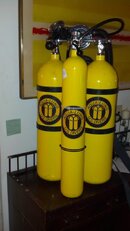I have yet to see or hear about a wreck diving/penetration specific course that I'd have considered worth taking. There's a bunch of stuff to learn from elsewhere, though.
My advice, mostly based on experience:
If you want to do wreck pen for the cool factor, don't. Cave diving is nicer and much safer.
As for useful training:
To get to the deep wrecks and back, extended bottom times and for general diving skills go for deco training. Wreck dives tend to be box-profile, and the good stuff is generally deep. Avoid instructors and agencies that allow running tech diving courses on inland sites without a boat diving component. Be aware that conditions vary greatly around the world, and the only way around that is to be dived up in the environment. I've seen extremely experienced warm-water divers become completely useless in the baltic, even when properly kitted, and baltic wreckies greatly overestimate their abilities in waters with tidal action...
For diving at the wrecks, cave training or at the very minimum GUE Fundies tech pass -level skills are extremely helpful. You should be able to move around tight spaces and look at stuff up close without making contact with the environment. Line work is always useful, as is streamlined and redundant equipment. All of this is covered in cave classes, which tend to better structured and standardised than the random assortment of wreck classes on offer.
Apart from the diving stuff, all sorts of skills are helpful, depending on how independent and/or possibly useful member of an expedition you intend to be. Watermanship, boating etc. Reading the local weather and a good judgment goes a long way to adding safety. Weather going bad topside during a 3 hour dive can make things really interesting...
Knowing your way around wrecks is hugely useful, but people interested in wreck diving generally pick this up along the way. Being prepared is the key, getting to dive a completely unknown wreck is rare - most of the time you know what you're likely to be diving so doing the research well ahead is simply a matter of not being lazy.

//LN







